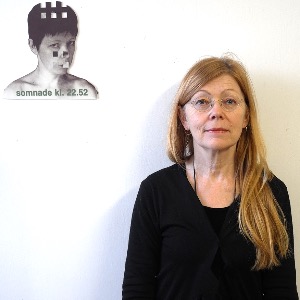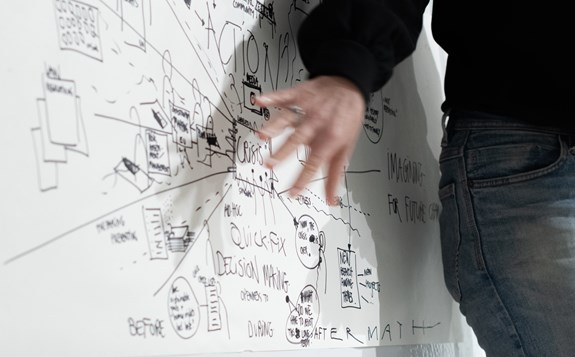We use cookies on this website. Cookies help us deliver the best experience on our website. Read about cookies.
-
- Education
- Education
- Programmes and courses
- Applications and admissions
- Tuition fees
- Scholarships
- Exchange studies at Malmö University
- Study Guidance
-
- After admission
- After admission
- Moving to Malmö
- Pre-orientation
- Arrival guide
-
- About studies at Malmö University
- About studies at Malmö University
- Why choose Malmö University
- Understanding university studies
- Connect with our students
On the page -
- Research
- Research
-
- Doctoral studies
- Doctoral studies
- Doctoral courses
-
- Doctoral schools
- Doctoral schools
- Doctoral school: Education, Learning and Globalisation
- Doctoral school: The National Research School for Professionals in Social Services
- Doctoral school: Learning in Multicultural Societal Contexts
- Doctoral school: ComBine
- Doctoral school: Swedish National Graduate School in Science and Technology Education Research
- Doctoral school: Relevancing Mathematics and Science Education (RelMaS)
- Doctoral school: Sustainable Movement Education
- Doctoral school: Finding ways in a time of great future challenges (FinnFram)
- Doctoral school: Pedagogy and Vocational Skills
- Doctoral school: Culturally Empowering Education through Language and Literature
- Research subjects
-
- Research centres
- Research centres
- Biofilms Research Centre for Biointerfaces
- Citizen Health
- Imagining and Co-Creating Futures
- Institute for Urban Research
- Malmö Institute for Migration Studies
- Literacy and Inclusive Teaching
- Centre for Work Life Studies
- Sustainable Digitalisation Research Centre
- Centre for Sexology and Sexuality Studies
-
- Research publications
- Research publications
- Search publications
- Malmö University Press
- Research events
- Participate in a research study
- Coffee Break Quiz
On the page -
- Collaboration and Innovation
- Collaboration and Innovation
- Innovation
- Collaboration with students
-
- Collaborate with researchers
- Collaborate with researchers
- Labs and facilities
- Culture collaboration
- Support Malmö University
- Alumni & Friends
On the page -
- About us
- About us
-
- Faculties and departments
- Faculties and departments
-
- Faculty of Culture and Society
- Faculty of Culture and Society
- Department of Urban Studies
- Department of Global Political Studies
- School of Arts and Communication
-
- Faculty of Education and Society
- Faculty of Education and Society
- Department of Childhood, Education and Society
- Department of Sports Sciences
- Department of Natural Science, Mathematics and Society
- Department of School Development and Leadership
- Department of Culture, Languages and Media
- Department of Society, Culture and Identity
-
- Faculty of Technology and Society
- Faculty of Technology and Society
- Department of Computer Science and Media Technology
- Department of Materials Science and Applied Mathematics
-
- Faculty of Odontology
- Faculty of Odontology
- Master's programmes in Dental Science
- University Dental Clinic
- Management and decision-making paths
-
- Vision, objectives and strategy 2025
- Vision, objectives and strategy 2025
- Global engagement
- Sustainability
- Widened recruitment and participation
- Quality assurance work at the University
-
- Malmö Academic Choir and Orchestra
- Malmö Academic Choir and Orchestra
- Student work – video pieces
-
- Annual Academic Celebration
- Annual Academic Celebration
- Academic traditions
- Meet our new professors
- The University in a troubled world
On the page

Maria
Hellström Reimer
Professor
maria.hellstrom.reimer@mau.se
+46 40 665 71 47
orcid.org/0000-0002-7776-3431
Presentation
Maria Hellström Reimer is professor in design in theory and practice.
A broad interest in creativity, knowledge production and societal issues led me to make the move from the field of visual art to the field of design research. Central to my research is the situating of design practice in a wider cultural context of artistic experimentation, societal engagement and conceptual development. My design research is therefore interdisciplinary, critically examining material and social conditions for coexistence while simultaneously focusing on the development of new, sustainable and equitable artifacts, environments and methods. At present, I am coordinating and supervising a number of research projects within the fields of design, art, landscape architecture, and cultural studies, including the project DNA at Play, an artistic research project that explores how genetic information through so-called recreational DNA services is being collected and put into play, and how this affects perceptions of time, space, origin and ethnicity. Alongside my own research, I have been working as a scientific advisor at the Swedish Research Council (2021-2024), with a focus on the development of cross-border and thematic arts-oriented research. I also consider international exchange to be important and I am currently involved with a number of research networks in Europe and beyond. During the spring 2019 I was visiting professor at Cornell University, USA, and since 2014 I am an associate researcher at TEAMed, Université de Paris 8 Vincennes-Saint-Denis.
DNA at Play / ADN en jeu – transparency and opacity of recreational genetics DNA at Play is an artistic research project that explores the promises that drive the emerging and highly controversial field of recreational genetics. Through platforms that focus on genealogy, people are enticed through a simple saliva test to pay to give up their DNA and their unique genetic code. The project practically and experimentally scrutinizes the technical conditions, the commercial logic and the aesthetic frameworks behind these services and asks the question of how this transformation of bodily fluids into attractive data streams and speculative narratives affects perceptions of time and space, history and origins, ethnicity and identity.
External project member: Tania Ruiz, Université Paris 8 Vincennes-Saint-Denis, Paris
Project period: January 1, 2022 – ongoing
Publications
-
2025 | Article in journal
En historik över forskningens gränsland
Maria Hellström Reimer
-
2024 | Article in journal
The politics of landscape narratives
Burcu Yigit-Turan, Sonia Keravel, Maria Hellström Reimer, Anaïs Leger-Smith, Francisca Lima, Usue Ruiz Arana, Ursula Wieser Benedetti
-
2024 | Article in journal
Stories from third space: A case and considerations of design research education from a Swedish vantage point
Maria Hellström Reimer, Ramia Mazé
-
2023 | Article in journal
Elemental landscapes
Maria Hellström Reimer, Usue Ruiz Arana, Sonia Keravel, Anaïs Leger-Smith, Francisca Lima, Ursula Wieser Benedetti, Burcu Yiğit-Turan
-
2023 | Article in journal
Forests in the city, a new paradigm?
Anaïs Leger-Smith, Ursula Wieser Benedetti, Maria Hellström Reimer, Sonia Keravel, Francisca Lima, Usue Ruiz Arana, Burcu Yiğit-Turan
Research Projects
You can find previous research projects in the Diva database.

